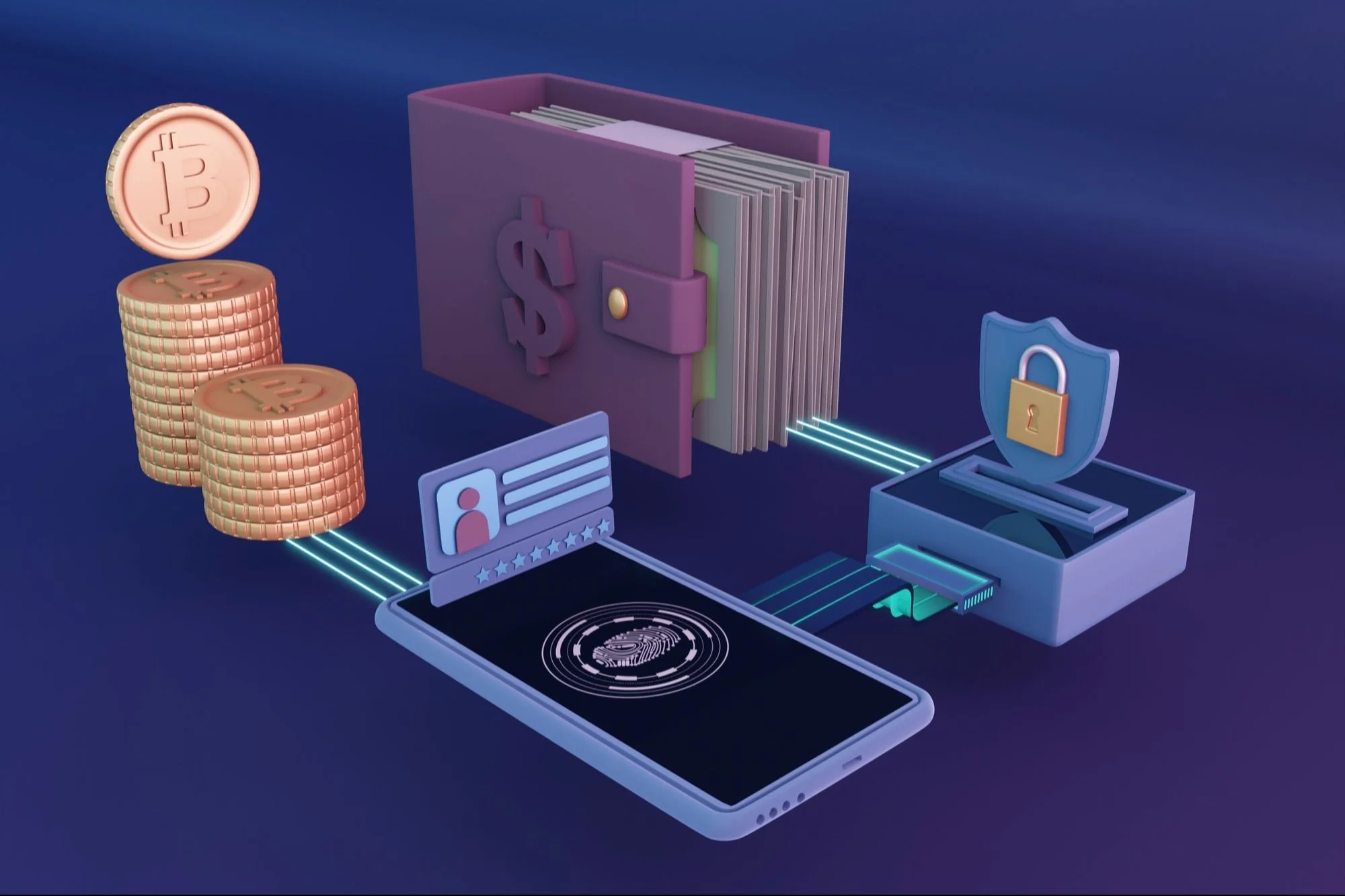The digital payment landscape has evolved dramatically, with cryptocurrency becoming a mainstream payment method for businesses worldwide. Finding the right crypto payment processor with low fees can make the difference between maximizing profits and losing money to excessive transaction costs. With the global cryptocurrency payment market projected to reach $12.96 billion by 2027, selecting an efficient payment processor has never been more critical for modern businesses.
Whether you’re an e-commerce store, service provider, or digital marketplace, understanding which crypto payment processors offer the most competitive fees while maintaining security and reliability is essential. This comprehensive guide will walk you through everything you need to know about choosing the perfect low-fee cryptocurrency payment solution for your business needs.
What is a Crypto Payment Processor with Low Fees
A crypto payment processor with low fees is a specialized financial service that enables businesses to accept cryptocurrency payments while minimizing transaction costs. Unlike traditional payment processors that typically charge 2-4% per transaction, the best crypto payment processors offer significantly lower fees, often ranging from 0.5% to 2%.
These platforms act as intermediaries between your business and the blockchain network, handling the technical complexities of cryptocurrency transactions while providing user-friendly interfaces for both merchants and customers. They convert digital currencies into your preferred fiat currency or allow you to hold crypto directly, depending on your business preferences.
The key advantage of choosing a low-fee crypto payment processor lies in the substantial cost savings. For businesses processing high transaction volumes, even a 1% reduction in fees can translate to thousands of dollars in annual savings. Additionally, these processors typically offer faster settlement times compared to traditional banking systems, with many providing same-day or next-day payouts.
Top Features to Look for in Low-Fee Crypto Payment Processors
Security and Compliance Standards
When evaluating any crypto payment processor, security should be your primary concern. Look for platforms that implement multi-layered security protocols, including cold storage for funds, two-factor authentication, and compliance with international regulations such as PCI DSS and AML/KYC requirements.
The most reputable processors undergo regular security audits and maintain insurance coverage for digital assets. They should also provide transparent information about their security measures and have a proven track record without major security breaches.
Supported Cryptocurrencies and Payment Methods
A versatile crypto payment processor should support multiple popular cryptocurrencies including Bitcoin, Ethereum, Litecoin, and major stablecoins like USDC and USDT. This diversity allows your customers to pay with their preferred digital currency, potentially increasing conversion rates.
Additionally, consider processors that offer hybrid solutions, accepting both cryptocurrency and traditional payment methods through a single integration. This flexibility ensures you don’t lose customers who prefer conventional payment options.
Integration and Developer Tools
Seamless integration capabilities are crucial for maintaining operational efficiency. The best crypto payment processors offer comprehensive APIs, plugins for popular e-commerce platforms like WooCommerce and Shopify, and detailed documentation for custom implementations.
Look for processors that provide sandbox environments for testing, webhook support for real-time transaction updates, and SDKs for various programming languages. These tools enable smooth implementation and ongoing maintenance of your payment system.
Comparing Transaction Fees Across Major Crypto Payment Processors

Processing Fees Structure
Understanding fee structures is essential when selecting a crypto payment processor with low fees. Most platforms employ tiered pricing based on monthly transaction volume, with higher volumes qualifying for reduced rates.
Common fee structures include flat percentage rates, per-transaction fees, or hybrid models combining both. Some processors also charge setup fees, monthly subscriptions, or withdrawal fees that can impact your overall costs.
Hidden Costs to Consider
Beyond advertised processing fees, several hidden costs can affect your bottom line. Currency conversion fees apply when automatically converting crypto to fiat currency, typically ranging from 0.5% to 1.5%.
Network fees for blockchain transactions, chargeback handling, and international transfer fees are additional considerations. Some processors also implement minimum monthly fees or charge for premium features like advanced analytics and reporting tools.
Best Crypto Payment Processors with Low Fees in 2025
Coinbase Commerce
Coinbase Commerce stands out as one of the most trusted names in cryptocurrency payments, offering competitive fees starting at 1% per transaction. The platform supports major cryptocurrencies and provides direct crypto-to-crypto transactions without forced conversions.
Key advantages include seamless integration with existing Coinbase accounts, robust security infrastructure, and comprehensive merchant tools. The platform is particularly suitable for businesses already using Coinbase’s ecosystem for cryptocurrency management.
Also Rrad: Cryptocurrency Price Trends: XRP, Dogecoin, and Monero
BitPay
BitPay has established itself as a pioneer in crypto payment processing, offering some of the lowest fees in the industry at just 1% for most transactions. The platform provides extensive cryptocurrency support and automatic conversion to fiat currencies.
Notable features include same-day settlement options, comprehensive fraud protection, and dedicated customer support. BitPay also offers prepaid cards for easy spending of cryptocurrency earnings.
BTCPay Server
For businesses seeking complete control over their payment infrastructure, BTCPay Server offers a self-hosted, open-source solution with zero fees beyond network costs. This option requires technical expertise but provides unmatched privacy and cost efficiency.
The platform supports numerous cryptocurrencies, offers extensive customization options, and integrates with popular e-commerce platforms. BTCPay Server is ideal for privacy-conscious businesses with development resources.
Setting Up Your Crypto Payment Processor
Account Registration and Verification
The setup process typically begins with creating an account and completing identity verification requirements. Most processors require business documentation, tax identification numbers, and proof of legitimacy to comply with regulatory standards.
Verification timelines vary from instant approval to several business days, depending on the processor and your business type. Prepare necessary documentation in advance to expedite the approval process.
Integration Process
Technical integration varies based on your existing infrastructure and chosen processor. E-commerce platforms often provide one-click plugin installations, while custom implementations require API integration following the processor’s documentation.
Test transactions in sandbox environments before going live to ensure proper functionality. Configure webhook endpoints to receive real-time transaction updates and implement proper error handling for failed payments.
Best Practices for Implementation
Optimize your checkout process by clearly displaying accepted cryptocurrencies and providing payment instructions. Consider implementing automatic conversion displays showing payment amounts in both crypto and fiat currencies.
Establish clear refund policies for cryptocurrency transactions and train customer service staff on crypto payment procedures. Monitor transaction performance regularly and adjust payment options based on customer preferences and success rates.
Security Considerations for Crypto Payments
Protecting Customer Data
Implement robust data protection measures including SSL encryption for all payment pages and secure storage of customer information. Never store private keys or sensitive cryptocurrency data on your servers.
Regular security audits and compliance with data protection regulations like GDPR help maintain customer trust and avoid regulatory penalties. Consider working with processors that offer advanced fraud detection and prevention tools.
Managing Cryptocurrency Volatility
Address price volatility concerns by offering immediate conversion to stable currencies or implementing time-limited payment windows. Clearly communicate any price adjustment policies to customers during checkout.
Consider using stablecoins for reduced volatility exposure or implement dynamic pricing that adjusts based on real-time exchange rates. Some processors offer volatility protection services for an additional fee.
Regulatory Compliance and Legal Considerations
Understanding Cryptocurrency Regulations
Cryptocurrency regulations vary significantly across jurisdictions and continue evolving rapidly. Stay informed about local requirements regarding cryptocurrency acceptance, tax obligations, and reporting requirements.
Work with legal counsel familiar with cryptocurrency regulations to ensure compliance with all applicable laws. Many jurisdictions require specific licenses for businesses accepting cryptocurrency payments.
Tax Implications
Accepting cryptocurrency payments creates tax obligations that differ from traditional payment methods. In many jurisdictions, each cryptocurrency transaction is considered a taxable event requiring detailed record-keeping.
Implement proper accounting procedures for cryptocurrency transactions and consider working with tax professionals experienced in digital asset taxation. Some payment processors offer integrated tax reporting features to simplify compliance.
Benefits of Using Low-Fee Crypto Payment Processors

Cost Savings Analysis
Switching to a crypto payment processor with low fees can result in substantial cost savings, particularly for businesses with high transaction volumes. Traditional payment processors typically charge 2.9% plus additional fees, while crypto processors often charge 1% or less.
For a business processing $100,000 monthly, the difference between 2.9% and 1% fees equals $1,900 in monthly savings or $22,800 annually. These savings can be reinvested in business growth or passed on to customers through competitive pricing.
Global Reach and Accessibility
Cryptocurrency payments eliminate geographical barriers and provide access to global markets without traditional banking limitations. Customers from any country can make payments without currency conversion fees or international transfer restrictions.
This global accessibility is particularly valuable for digital businesses, online services, and companies targeting international markets. Faster settlement times compared to international wire transfers improve cash flow and reduce operational complexities.
Enhanced Customer Privacy
Many customers prefer cryptocurrency payments for enhanced privacy and reduced data sharing requirements. Unlike credit card transactions, crypto payments don’t require extensive personal information, appealing to privacy-conscious consumers. This privacy advantage can attract new customer segments and differentiate your business from competitors. However, balance privacy benefits with necessary compliance requirements in your jurisdiction.
Common Challenges and Solutions
Technical Integration Issues
Technical challenges during integration are common, particularly for businesses without dedicated development resources. Common issues include API compatibility problems, webhook configuration errors, and payment flow optimization.
Solutions include thorough testing in sandbox environments, utilizing provided SDKs and plugins, and accessing processor support resources. Consider working with experienced developers or consultants for complex implementations.
Customer Education and Adoption
Many customers remain unfamiliar with cryptocurrency payments, potentially limiting adoption rates. Address this challenge through clear payment instructions, educational content, and customer support training.
Provide step-by-step guides for first-time crypto users and consider offering incentives for cryptocurrency payments. Gradually introduce crypto options alongside traditional payment methods to allow natural adoption.
Managing Refunds and Disputes
Cryptocurrency’s irreversible nature complicates refund processes compared to traditional payment methods. Establish clear refund policies and implement efficient processes for handling disputes. Consider using processors that offer dispute resolution services or maintain reserve funds for refunds. Communicate refund procedures clearly to customers before purchase completion.
Future Trends in Crypto Payment Processing
Emerging Technologies
The crypto payment landscape continues evolving with emerging technologies like lightning networks for Bitcoin, which enable near-instantaneous transactions with minimal fees. Layer 2 solutions and cross-chain protocols promise even greater efficiency and cost reduction.
Central Bank Digital Currencies (CBDCs) may reshape the payment processing industry, potentially offering government-backed digital payment options with enhanced stability and regulatory clarity.
Market Adoption Headlands
Industry analysts project continued growth in cryptocurrency payment adoption, driven by increasing consumer awareness and merchant acceptance. Institutional adoption and regulatory clarity will likely accelerate mainstream integration.
Prepare for this growth by implementing scalable payment solutions and staying informed about industry developments. Early adopters often benefit from competitive advantages and customer loyalty.
Choosing the Right Processor for Your Business
Business Size Considerations
Different processors cater to various business sizes and needs. Small businesses might prioritize simplicity and low setup costs, while enterprises require advanced features, custom integrations, and dedicated support.
Consider your current transaction volume and growth projections when evaluating fee structures. Many processors offer volume discounts that become more favorable as your business scales.
Industry-Specific Requirements
Certain industries face unique requirements or restrictions regarding cryptocurrency payments. High-risk businesses may have limited processor options, while regulated industries need compliance-focused solutions.
Research industry-specific considerations and choose processors with relevant experience and certifications. Some processors specialize in particular sectors and offer tailored solutions.
Growth Scalability
Select processors that can accommodate your business growth without requiring major system changes. Evaluate API rate limits, supported transaction volumes, and available features for expanding businesses.
Consider processors offering multiple service tiers that allow upgrading as your needs evolve. This approach minimizes migration costs and maintains operational continuity during growth phases.
Conclusion
Selecting the right crypto payment processor with low fees represents a strategic decision that can significantly impact your business’s profitability and growth potential. With transaction fees ranging from 0.5% to 2% compared to traditional processors’ 2.9% or higher, the cost savings alone justify serious consideration of cryptocurrency payment solutions.
The key to success lies in evaluating processors based on your specific business needs, including security requirements, supported cryptocurrencies, integration complexity, and scalability options. Whether you choose established platforms like Coinbase Commerce and BitPay for their reliability and features, or opt for self-hosted solutions like BTCPay Server for maximum control and zero fees, the right choice depends on your technical capabilities and business objectives.
As cryptocurrency adoption continues accelerating globally, businesses that implement efficient crypto payment solutions today position themselves advantageously for future growth. The combination of lower fees, faster settlements, global accessibility, and enhanced customer privacy makes cryptocurrency payments an increasingly attractive option for forward-thinking businesses.
Take action today by researching the recommended crypto payment processors with low fees, evaluating their features against your business requirements, and implementing a solution that will drive cost savings and customer satisfaction for years to come.
FAQs
Q: What are the typical fees for crypto payment processors?
A: Most crypto payment processors charge between 0.5% to 2% per transaction, significantly lower than traditional payment processors that typically charge 2.9% plus additional fees. Some processors like BTCPay Server offer zero-fee solutions for self-hosted implementations.
Q: How quickly do crypto payment processors settle funds?
A: Settlement times vary by processor but are generally faster than traditional banking. Most crypto processors offer same-day or next-day settlement, with some providing instant conversion to fiat currency upon payment confirmation.
Q: Are crypto payment processors secure for business use?
A: Reputable crypto payment processors implement enterprise-grade security measures including cold storage, multi-signature wallets, and compliance with international security standards. Choose processors with proven track records and comprehensive insurance coverage.
Q: Can I accept both crypto and traditional payments through the same processor?
A: Many modern payment processors offer hybrid solutions supporting both cryptocurrency and traditional payment methods through unified APIs. This approach provides payment flexibility while simplifying integration and management.
Q: What cryptocurrencies should I accept for my business?
A: Focus on major cryptocurrencies like Bitcoin, Ethereum, and popular stablecoins (USDC, USDT) for maximum customer compatibility. Consider your target audience and industry when deciding which additional altcoins to support.


